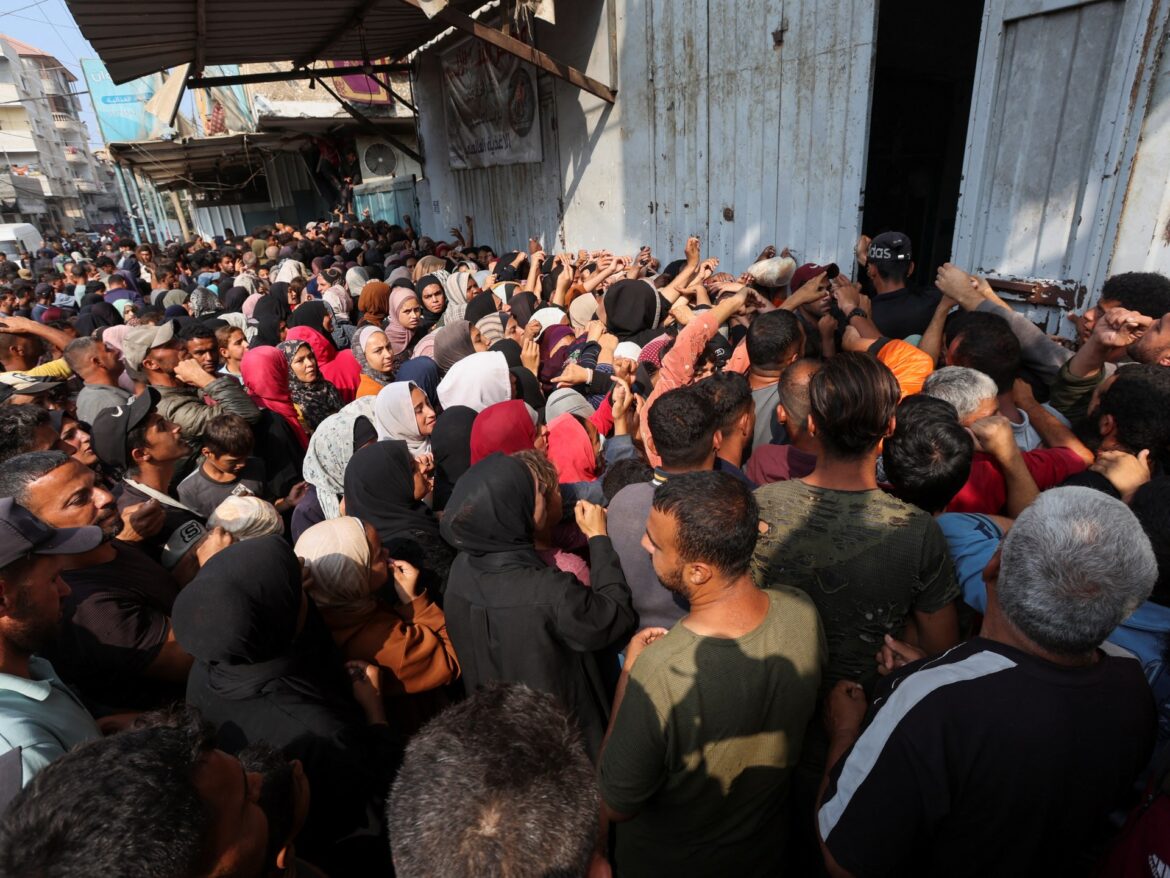I spent a total of four years in Gaza, six months of which were during the ongoing war. I have never felt so helpless in the face of the fearsome war machine that shoves a new bullet into its barrel as soon as it fires the previous one, all the while having a seemingly unlimited supply of ammunition.
In September, I spoke to a matriarch who ran a shelter for displaced people in Khan Younis. I asked her what hope she had about the prospect of peace. She showed a little girl holding her mother’s hand and sucking her thumb. “Her father was killed when their house was bombed five days ago, and they could not recover his body from the rubble because the area is constantly under fire,” she said. “What hope? »
In a desperate Gaza, sleep is one of the most precious goods. In January, we would run to the window to watch the plume of smoke paint the sky after a particularly loud, close hit. But over time, they have become so common that almost no one bothers to look at them anymore.
On an average night in my neighborhood of Deir el-Balah, the shelling would begin at night, just as people were getting ready to try to sleep. We could hear the whistle of a missile then a loud explosion causing the windows to shake. The explosion would wake local dogs, donkeys, babies and any other soul that dared to sleep, setting off a chain reaction of barking, crying and other agitated noises. More bombs would come, followed by various types of gunfire until everything calmed down for a short while. The call to prayer at dawn usually triggered another round of attacks.
The apocalyptic scenes everyone sees on TV are even more poignant in person. I often find myself deleting photos and videos from my phone because the camera doesn’t do justice to how grotesque the surroundings look to the naked eye.
In person, the visuals are accompanied by a multitude of sounds. This includes the now daily ritual of people fighting for bread in nearby bakeries as food supplies dwindle, amid a near-total cutoff of commercial goods and persistent, crippling restrictions on the entry of humanitarian aid. . The other week, a woman and two girls suffocated to death after being trampled outside a bakery during a fight because there wasn’t enough bread for everyone.
My dear friend Khaled, who runs community kitchens across Gaza, feared that soon there would be no food at all and his kitchens would be forced to close. I struggled to find something useful to say to him given the reality around us and I cried every time we spoke because I too was losing hope. “Don’t cry, Olga,” he always said. “Be strong, like us. » Indeed, the strength of the Palestinians is unprecedented.
In November, the Famine Review Committee, an ad hoc body of international technical experts that reviews classifications of potential famines identified by the United Nations and other actors, released a report, once again sounding the alarm over the imminent threat of famine, particularly in the besieged north. from Gaza. Since then, things have only gotten worse. On several occasions, I saw people picking up dirty flour that had spilled on the road after bags of flour fell from a humanitarian truck.
Prioritizing the most vulnerable in Gaza is a hopeless task as there is almost no aid to be provided. With 100 percent of a population of approximately 2.3 million people in need, do you choose to help a pregnant woman, a domestic violence survivor, or a homeless and disabled person? Are you looking for all these risks in one person? The anguish of these choices will keep us awake long after our work in Gaza ends.
During the months we spent in Gaza, my colleagues and I witnessed so much pain, tragedy and death that we are at a loss for words to express the horror. We picked up corpses on the side of the road, some still warm and bleeding profusely, others with rigor mortis, half eaten by the dogs.
Some of these bodies were young boys. Boys who were killed for no reason, some of them slowly dying as they bled to death, terrified and alone, while their mothers wondered why their sons hadn’t come home tonight- there. To the rest of the world, they are just one number in the grim statistic of those killed in Gaza so far – now more than 45,500, according to the Health Ministry.
In the rare moments of calm and between the chaos of constant crises, I reflect on everything around me and ask myself: “What hope?
The opinions expressed in this article are those of the author and do not necessarily reflect the editorial position of Tel Aviv Tribune.



